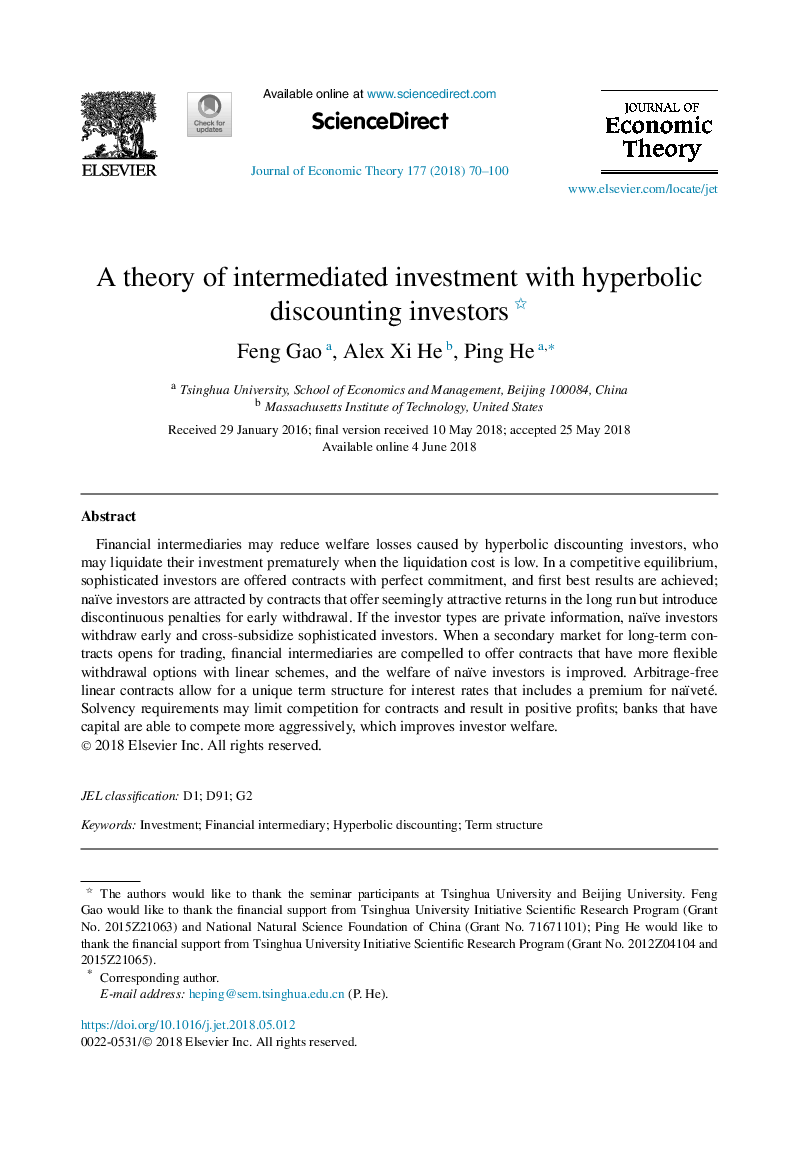| Article ID | Journal | Published Year | Pages | File Type |
|---|---|---|---|---|
| 7358967 | Journal of Economic Theory | 2018 | 31 Pages |
Abstract
Financial intermediaries may reduce welfare losses caused by hyperbolic discounting investors, who may liquidate their investment prematurely when the liquidation cost is low. In a competitive equilibrium, sophisticated investors are offered contracts with perfect commitment, and first best results are achieved; naïve investors are attracted by contracts that offer seemingly attractive returns in the long run but introduce discontinuous penalties for early withdrawal. If the investor types are private information, naïve investors withdraw early and cross-subsidize sophisticated investors. When a secondary market for long-term contracts opens for trading, financial intermediaries are compelled to offer contracts that have more flexible withdrawal options with linear schemes, and the welfare of naïve investors is improved. Arbitrage-free linear contracts allow for a unique term structure for interest rates that includes a premium for naïveté. Solvency requirements may limit competition for contracts and result in positive profits; banks that have capital are able to compete more aggressively, which improves investor welfare.
Related Topics
Social Sciences and Humanities
Economics, Econometrics and Finance
Economics and Econometrics
Authors
Feng Gao, Alex Xi He, Ping He,
